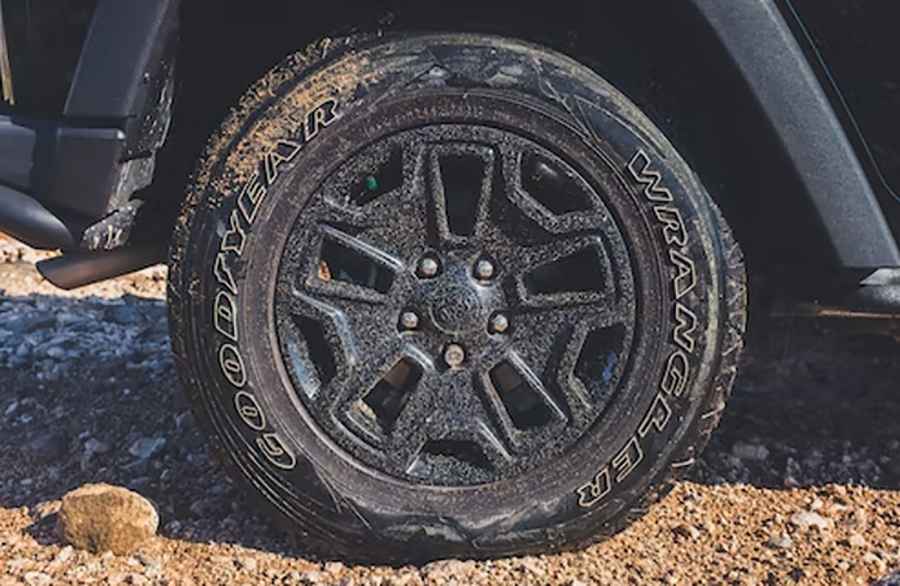How To Prepare Your Truck For The Road? Top Advice
Trucks are a reliable form of transportation for many people, allowing them to move goods and services from one place to another. They come in all shapes, sizes, and styles, but they all have one thing in common - they need regular maintenance to keep running properly. Preparing your truck for a road trip is essential if you want it to be safe and efficient during your journey. Here are some top tips on preparing your truck for a road trip.

1. Service Your Vehicle
Regular maintenance is essential for keeping your vehicle in good condition - this includes oil changes every 5,000-7,000 miles (or according to the manufacturer's recommendations) and a full service every 10,000 miles. A full service will check all of the major components of your truck, such as brakes, suspension, and engine performance. This can help you identify any problems before they become serious issues out on the road.
Most mechanics offer pre-trip inspections, which involve checking over the main components of your vehicle to ensure they are running correctly and safely. This can help you catch any problems before they become serious, saving you time and money in the long run. Also, ensure you get quality truck parts. The mechanics at Shoreline Truck Parts, for example, can help you source the best parts for your vehicle and get it running in top condition before you set off. By investing in quality parts, you can be sure that your truck will run smoothly during your journey.
2. Ensure Adequate Tires and Tire Pressure
Tires are the most important component of any vehicle; inspecting them before a long trip is essential. Ensure the tires have enough tread depth and are properly inflated to the manufacturer's recommended pressure. To ensure adequate tires and tire pressure before setting off on a road trip, check that all four tires have sufficient tread depth (2/32" is recommended) and are inflated to their manufacturer's recommended levels. If you find any issues, such as bulging or cracking in the tire's sidewalls, replace them immediately before heading out onto the road.
Additionally, inspect each wheel hub for signs of wear or tear, which could indicate loose nuts or bolts that need tightening up. Make sure to rotate your wheels regularly to maintain even wear patterns across all four tires - this will help prolong their life and improve performance during your journey. A spare tire should also be brought along in case of an emergency.

3. Check All Fluids
Oil should be checked first - this helps lubricate the engine and keeps it running smoothly during long trips. Ensure there's enough oil in your truck by checking the dipstick and visually inspecting under the hood for any signs of leaks or corrosion around hoses or other components. If you notice anything unusual, take your vehicle to a mechanic before leaving for your journey.
Coolant levels should also be inspected before setting off on a long drive - this prevents overheating, which can cause damage to an engine if left unchecked over time. Check that sufficient coolant is in both tanks (the radiator and reservoir) and top up if necessary using antifreeze/water mix according to manufacturer instructions.
Brake fluid needs topping up every few months, too – check this before heading out onto any major roads, as good brakes are essential for safe driving. Finally, transmission fluid helps your truck shift smoothly between gears – check the levels before setting off and top up with a suitable lubricant if needed.
4. Check All Lights and Windows
Before you leave for your road trip, check that all the lights on your truck are working properly. This includes headlights, tail lights, and brake lights. It's also important to ensure the windows are clean and free from any obstructions that could impede your visibility when driving. If you have tinted windows, it is especially important to check that the tint is light for legal requirements in certain states.
To ensure your safety on the road, you should also ensure that all your signals and indicators function correctly. Test them all before heading off - this will help you communicate with other drivers when changing lanes or entering a junction.
Finally, make sure that your windscreen wipers are working and in good condition. This helps clear visibility when driving in rain or snow, increasing road safety. Change the wiper blades every 6 months to ensure they perform optimally.
5. Inspect The Wiring
It's important to check that your truck's wirings are in good condition. Look for any frayed wires, corrosion, or loose connections, which could indicate a safety issue. To avoid any potential damage to the vehicle's electronics, it is advisable to refer to your manuals for accurate instructions on wire repair, ensuring that you correctly identify the appropriate connections and follow the recommended procedure. Make sure to have these components attended to by a professional mechanic if necessary.
Tire pressure should also be checked before heading out on a long journey. Low tire pressure can increase the chances of having an accident as it affects your vehicle's handling and stability. Ensure all four tires are inflated correctly according to the manufacturer's recommendations
Also, inspect the battery for any corrosion or leaking and check that the terminals are tightened securely. Clean the battery with a solution of baking soda and water to help extend its life. Finally, be sure to check your truck's fuses, too. Make sure all the necessary ones are in place and replace any damaged or broken fuses.
6. Pack an Emergency Kit
One of the best ways to prepare for emergencies on the road is by packing an emergency kit. Your emergency kit should include flares, jumper cables, and a first-aid kit. Pack tools such as pliers and screwdrivers which can come in handy if you need to make minor repairs while on the road. It's also important to have flashlights and spare batteries to see clearly at night if necessary.
If your vehicle has air conditioning, it's wise to bring some extra coolant with you in case of any issues along the way. Finally, make sure that your phone charger is packed to stay connected even when away from home - it's always good practice to keep your mobile device charged up in an emergency where access to help might be needed quickly.
Following these simple tips ensures that your vehicle is in tip-top condition before a road trip. Taking the time to service and inspect your truck will help keep you safe and avoid any expensive repairs or breakdowns during your journey. Be prepared and plan - this will help make your trip successful.